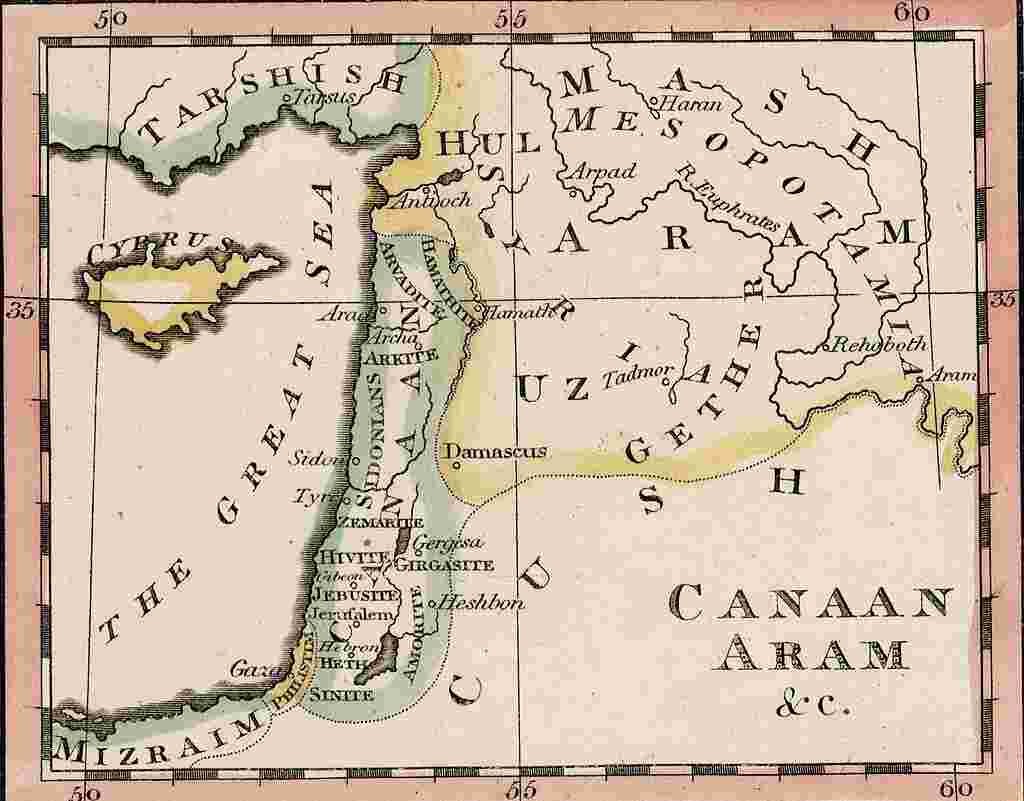History of Israel and Palestine: Stories Through Thousands of Years
The history of Israel and Palestine is complex and spans thousands of years. In the middle of the Middle East, the long stories of Israel and Palestine have been woven together for more than a three thousand years. They are like a big blanket made of different colors, with many different cultures, fights, and things they share.
These stories have been connected for over 3,200 years, which is a super long time! Here’s a brief overview:
Ancient History:
– Biblical Era (c. 13th-6th centuries BCE):
This period is foundational for both Jewish and Palestinian identities. It encompasses events such as the Exodus, the conquest of Canaan, the establishment of the Kingdom of Israel, and the later exiles.
The time from around 13th to 6th centuries BCE is known as the Biblical Era. It’s really important for both Jewish and Palestinian histories. This period covers major events like the Exodus, when the Israelites left Egypt, and the takeover of Canaan. It’s also when the Kingdom of Israel was established. Later on, there were exiles, where people were forced to leave their homes. All these events are a big part of the stories that Jewish and Palestinian people tell about their past.
– Roman Rule (63 BCE – 7th century CE):
After the Roman conquest, the region was known as Judea. The destruction of the Second Temple in 70 CE marked a significant turning point for Judaism. They called the area Judea. In 70 CE, the Second Temple, an important place for Jewish worship, was destroyed. This event was a really big deal and changed things a lot for Judaism.
Medieval and Ottoman Periods:
– Byzantine and Islamic Caliphates (4th – 7th centuries):
The region saw various empires and caliphates ruling over it. During the 4th to 7th centuries, the area witnessed the dominance of the Byzantine Empire in the west and the emergence of Islamic Caliphates in the east. These empires and caliphates played significant roles in shaping the political and cultural landscape of the region during this period.
– Crusader Period (11th – 13th centuries):
Jerusalem changed hands multiple times between Christian Crusaders and Muslim forces. Between the 11th and 13th centuries, Jerusalem became a focal point of conflict, with control shifting back and forth between Christian Crusaders and Muslim armies. This period was marked by intense battles for control over the holy city.
– Ottoman Empire (16th – 20th centuries):
The Ottomans ruled the area for several centuries, bringing relative stability but also challenges for both Jewish and Arab communities.
The Ottoman Empire was a massive kingdom that lasted for centuries, from the 16th to the 20th century. It covered a vast area with various communities like Jewish and Arab groups. The Ottomans maintained order but faced challenges in managing such diversity. They had a strong government and army. Over time, the empire started to decline, and parts of it gained independence.
Zionism and British Mandate (late 19th – mid 20th centuries):
– Zionist Movement (late 19th – early 20th centuries):
Zionism, a Jewish nationalist movement, sought to establish a Jewish homeland in Palestine. In the late 19th century, the Zionist movement emerged, which advocated for the establishment of a Jewish homeland in Palestine. At the time, Palestine was part of the Ottoman Empire and was inhabited by a majority Arab population.
– Balfour Declaration (1917):
The British government expressed support for the establishment of a “national home for the Jewish people” in Palestine.
In 1917, during World War I, the British government issued the Balfour Declaration, which stated that it would “view with favour the establishment in Palestine of a national home for the Jewish people.
After World War I, the Ottoman Empire was dissolved and Palestine came under British rule. During the British Mandate period, there was a significant increase in Jewish immigration to Palestine, which led to growing tensions between Jews and Arabs.
– British Mandate (1920-1948):
Following the fall of the Ottoman Empire, Britain administered Palestine. Tensions between Jewish and Arab communities increased.
1947 UN Partition Plan and Israeli Independence:
– UN Partition Plan (1947):
The United Nations proposed dividing Palestine into Jewish and Arab states, with Jerusalem under international administration. Jewish leaders accepted, Arab leaders rejected.
In 1947, the United Nations voted to partition Palestine into two states, one Jewish and one Arab. The Jewish leadership accepted the plan, but the Arab leadership rejected it.
– Israeli Declaration of Independence (1948):
Following the end of the British Mandate, David Ben-Gurion proclaimed the establishment of the State of Israel. Arab states launched a war against Israel.
Israeli-Arab Conflicts (1948-present):
– 1948 Arab-Israeli War:
Israel gained territory, and neighboring Arab countries occupied parts of Palestine.
On May 14, 1948, the British Mandate ended and the State of Israel was declared. This led to the 1948 Arab-Israeli War, which resulted in the displacement of hundreds of thousands of Palestinians.
After the war, Israel was in control of most of the territory that had been allocated to it under the UN partition plan. The West Bank and Gaza Strip were captured by Jordan and Egypt, respectively.
– Six-Day War (1967):
Israel occupied East Jerusalem, the West Bank, Gaza Strip, Sinai Peninsula, and Golan Heights.
In 1967, Israel captured the West Bank, Gaza Strip, and East Jerusalem from Jordan, Egypt, and Syria in the Six-Day War.
Since then, Israel has occupied the West Bank and Gaza Strip, and the Palestinians have sought to establish their own independent state in these territories.
– Peace Efforts and Conflicts (1970s-present):
In the history of Israel and Palestine, there have been various attempts at peace agreements, including the Camp David Accords, Oslo Accords, and others. However, the conflict continues with periodic outbreaks of violence.

Current Situation and Israel Palestine conflicts:
2021 conflict
The recent conflict between Israel and Palestine began on May 10, 2021, after clashes broke out between Palestinian protesters and Israeli police at the Al-Aqsa Mosque in Jerusalem. The violence quickly escalated, with both sides firing rockets and missiles at each other. The conflict lasted for 11 days, and resulted in the deaths of over 250 people, including 67 children.
The situation remains highly contentious, with issues such as borders, refugees, settlements, and the status of Jerusalem at the forefront of discussions. Achieving a lasting peace remains a complex and elusive goal.
There are many different perspectives on the conflict between Israel and Palestine. Some people believe that the conflict is a religious one, while others believe that it is a political one. Some people believe that Israel is the aggressor in the conflict, while others believe that Palestine is the aggressor.
2023 conflict
In 2023, there have been many fights in Israel and Palestine. Before this big fight, lots of people got hurt. In both sides, 247 Palestinians and 32 Israelis, plus two foreigners, lost their lives. In 2023, Israel’s new government started building more houses in an area called the West Bank, which they control. This made some Israelis attack Palestinians, and many had to leave their homes. There’s also been trouble at a special place in Jerusalem, called Al-Aqsa Mosque.
On October 7, 2023, a group from Palestine, led by Hamas, started a big fight with Israel. They broke through a wall and got into Israel from Gaza. This was called Operation al-Aqsa Storm. It’s the first time since 1948 that a big fight has happened inside Israel.
Today, on October 9, 2023, the fight is still going on. Israel has sent planes to Gaza and a lot of people, including regular people, got hurt. Hamas has shot many rockets at Israel and some people were hurt there too.
People from around the world have said that this fighting is very bad and want it to stop. But right now, it doesn’t seem like it will stop soon. The fight between Israel and Palestine is really complicated and has been going on for a long time. Finding a good answer isn’t easy. But it’s really important to try and find a peaceful way that respects the rights of both Israelis and Palestinians.
The Israeli-Palestinian conflict is a complex and sensitive issue, with no easy solutions. It is important to understand the history of the conflict in order to better understand the current situation.
Sources: The Conversation, PinterPandai, Oxford Reference, BBC
Photo credit: John Melish, Public domain, via Wikimedia Commons
Photo description: Map of Canaan by John Melish (1815)
War in the Bible | Name of Conflicts, History, Biblical Sources and Dating




